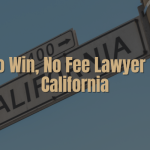Golf carts can be street legal in Colorado when classified as Low-Speed Vehicles (LSVs). However, regulations vary by location. A driver’s license is required for LSVs, while street-ready golf carts often have age and speed restrictions. This guide will explore specific rules and safety tips. Here’s how:
Golf carts have become increasingly popular beyond the fairways, with many people using them for short trips around neighborhoods and communities. However, navigating the legal landscape for golf cart use on public roads can be tricky.
Table of Contents
- Are Golf Carts Street Legal in Colorado?
- How Old Do You Have to Be to Drive a Golf Cart in Colorado?
- Can You Drive A Golf Cart on The Road In Colorado?
- How Do You Make A Golf Cart Street Legal? Colorado Legal Requirements
- Registration and Insurance
- Do You Need A Driver’s License To Drive A Golf Cart?
- Local Variations in Colorado Golf Cart Laws
- Safety Considerations for Golf Cart Operation
- Environmental Benefits of Golf Cart Use
- The Future of Golf Cart Laws in Colorado
- Colorado Golf Cart Laws: Always Check With Local Authorities
This comprehensive guide will explore Colorado golf cart laws, including street legality and requirements for operation. In addition to understanding the regulations, it’s important to be prepared for any potential accidents. If an accident does occur, calling a personal injury lawyer can help you understand your rights and protect your interests in what can be a complex legal situation.
Are Golf Carts Street Legal in Colorado?
The short answer is: it depends. At the state level, Colorado classifies golf carts as “low-speed electric vehicles” (LSEVs) when they meet certain criteria. To be considered an LSEV, a golf cart must:
- Have at least four wheels
- Be capable of reaching speeds of at least 20 mph but not exceeding 25 mph
- Have a gross vehicle weight rating (GVWR) of less than 3,000 pounds
If a golf cart meets these requirements, it can potentially be street legal on certain roads. However, there are additional Colorado golf cart laws that come into play.
Colorado golf cart street legal requirements vary based on several factors, including the type of road, local regulations, and the specifications of the actual golf cart itself. Let’s dive deeper into the nuances of these laws.
How Old Do You Have to Be to Drive a Golf Cart in Colorado?
To operate a golf cart in Colorado, age restrictions vary depending on the type of vehicle:
- Age for Street-Ready Golf Carts is 14 years old
- Age for Street-Legal Golf Carts and LSVs is 16 years old with a valid driver’s license
Types of Golf Carts and Age Requirements
Street-Ready Golf Carts:
- You must be at least 14 years old to operate a street-ready golf cart.
- No driver’s license is required.
- Typically allowed on roads with speed limits of 25 mph or less.
Street-Legal Golf Carts and LSVs:
- You must have a valid state driver’s license to drive a street-legal golf cart or a low-speed vehicle (LSV).
- Typically allowed on roads with speed limits of 35 mph or less.
Where you can drive these carts also varies. Street-ready golf carts are usually allowed on roads with speed limits of 25 mph or less. However, this can change depending on the specific town or neighborhood.
Street-legal golf carts and LSVs have more freedom – they can be driven on roads with speed limits up to 35 mph. Here are more important distinctions between the two types of golf carts permitted to drive on Colorado roadways.
What Is a Street-Ready Golf Cart?
Street-ready golf carts usually go 12-19 mph and weigh 800-1100 pounds. How fast and heavy they are depends on things like how old they are, their size, and battery life.
To make a golf cart street-ready, it needs to have:
- Headlights and taillights
- Turn signals
- A horn
- Side mirrors or a 5-panel rearview mirror
Drivers are not permitted to drive a street-ready golf car at night unless your cart has reflectors and a headlamp.
These changes make golf carts safer to drive on regular roads, turning them from just fun vehicles into practical ways to get around town.
A driver’s license is required to operate a street-legal golf cart on public roads. Low-speed vehicles (LSVs) are also required to undergo a state inspection, be properly insured, and have a title just like any other vehicle. Additionally, license plates are required for identification purposes.
It’s important to remember that these rules might be different in some areas. If you’re planning to drive a golf cart on public roads, it’s a good idea to check both state laws and local rules to make sure you’re following all the regulations and staying safe.
Can You Drive A Golf Cart on The Road In Colorado?
In most places, you can drive golf carts on roads where the speed limit is 25 mph or less, but rules can be different depending on where you live.
Even if a golf cart qualifies as an LSEV under state law, local municipalities have the authority to regulate their use on public roads. This means that while golf carts are street legal in Colorado, there can be different answers depending on where you are in the state.
Generally, LSEVs (including qualifying golf carts) are allowed on:
- Roads with speed limits of 35 mph or less
- Designated crossing areas for higher-speed roads
However, they are typically prohibited on:
- State highways
- Roads with speed limits above 35 mph
- Interstate highways
It is always recommended to check with your local government for specific ordinances regarding golf cart use on public streets in your area.
How Do You Make A Golf Cart Street Legal? Colorado Legal Requirements
If you’re looking to make your golf cart street legal in Colorado, there are several requirements you’ll need to meet. These Colorado golf cart street legal requirements ensure that your vehicle is safe and compliant with state laws.
To operate a golf cart on public roads in Colorado, it must be equipped with:
- Rear-facing mirrors
- Headlights, turn signals, horn, & taillights
- Seat belts
- Speedometer
- DOT-approved windshield & windshield wipers
- DOT-approved tires
- Parking brake
- Vehicle Identification Number (VIN) for registration and insurance
You are permitted to drive a street-legal golf cart or LSV at night, since they come equipped with rear lights and headlights.
Registration and Insurance
In addition to the equipment requirements, you’ll need to:
- Register your golf cart with the Colorado Department of Motor Vehicles (DMV)
- Obtain proper insurance coverage
- Display a license plate on the rear of the vehicle
Do You Need A Driver’s License To Drive A Golf Cart?
Whether you need a driver’s license for a golf cart in Colorado depends on its type. Street-legal golf carts and LSVs require a license and can operate on 35 mph roads. Street-ready golf carts, limited to 25 mph roads, often don’t need a license but local rules may apply.
There are no special endorsements required, but drivers must be at least 16 years old and possess a standard operator’s license.
Local Variations in Colorado Golf Cart Laws
As mentioned earlier, local jurisdictions have the authority to create their own regulations regarding golf cart use on public roads. Let’s explore some examples of how Colorado golf cart laws can vary across different cities and towns.
Mountain Communities
In many Colorado mountain towns, golf carts have become a popular mode of transportation for tourists and locals alike. Some communities have embraced this trend by creating golf cart-friendly ordinances, such as:
- Snowmass Village: Allows golf carts on designated roads within the village, with specific rules for operation during daylight hours.
- Copper Mountain: Permits golf carts on certain roads within the resort area, but requires registration and adherence to specific safety guidelines.
Front Range Cities
Larger cities along Colorado’s Front Range generally have stricter regulations, for example:
- Denver: Generally prohibits golf cart use on public streets, with exceptions for special events or designated areas.
- Boulder: Allows LSEVs (including qualifying golf carts) on most city streets with speed limits of 35 mph or less, but requires full compliance with state equipment standards.
Rural Communities
Some rural Colorado communities have adopted more lenient attitudes towards golf cart use. For instance:
- Mead: Permits golf carts on town roads with speed limits of 25 mph or less, with specific equipment requirements and time-of-day restrictions.
- Wiggins: Allows golf carts on most town streets, but requires operators to obtain a town-issued permit and follow specific safety guidelines.
Whether you live in the suburbs, a mountain town, or on a farm, you should always check with your local jurisdiction about the specific golf cart or LSV regulations in your area.
Safety Considerations for Golf Cart Operation
While understanding Colorado golf cart street legal requirements is essential, it’s equally important to prioritize safety when operating these vehicles on public roads. Here are some key safety considerations:
Golf cart safety involves several key considerations. When sharing the road, operators must be aware of other vehicles, pedestrians, and cyclists, and exercise caution when entering traffic due to the golf cart’s slower acceleration.
Visibility is a primary concern, as golf carts are smaller and sit lower than most vehicles on the road, necessitating the use of lights, reflectors, and bright colors to increase visibility.
Weather conditions pose another challenge, as golf carts offer less protection from the elements than traditional vehicles, requiring extra caution during inclement weather.
Passenger safety is paramount, with all occupants required to remain seated and use seatbelts when available, while never exceeding the designated passenger capacity.
Lastly, terrain awareness is essential, as golf carts have a higher center of gravity than most vehicles, making them more susceptible to tipping on uneven terrain or during sharp turns.
Environmental Benefits of Golf Cart Use
As Colorado continues to focus on sustainability and reducing carbon emissions, golf carts and other LSEVs offer several environmental benefits:
Electric golf carts offer several environmental and community benefits. They produce zero direct emissions, which helps improve local air quality. These vehicles are also more energy-efficient than traditional vehicles for short trips. Electric golf carts operate quietly, contributing to a reduction in noise pollution within communities.
In areas where golf cart use is common, they can also help alleviate traffic congestion for short local trips, further enhancing their positive impact on the environment and community well-being.
The Future of Golf Cart Laws in Colorado
As golf cart use continues to grow beyond golf courses, it’s likely that Colorado golf cart laws will evolve to address changing needs and concerns. In the future, there may be expanded infrastructure as more communities invest in dedicated golf cart paths or lanes to enhance safety and accessibility.
As golf cart technology advances, regulations could adapt to accommodate features like higher top speeds or improved safety systems. There may also be efforts to standardize regulations across the state to reduce confusion and improve compliance.
Golf carts might also become integrated into broader micromobility strategies, alongside e-bikes and scooters, offering alternative transportation options.
Colorado Golf Cart Laws: Always Check With Local Authorities
Navigating Colorado golf cart laws can be complex, but understanding the regulations is essential for safe and legal operation. While the answer to “are golf carts street legal in Colorado” isn’t always straightforward, this guide provides a comprehensive overview of the current legal landscape.
Remember that Colorado golf cart street legal requirements can vary significantly between jurisdictions, so always check with local authorities before operating a golf cart on public roads. Additionally, calling a lawyer to know your rights can provide clarity on how the law applies to your specific situation, ensuring you remain compliant and informed.
By following the law, prioritizing safety, and being considerate of others on the road, golf cart enthusiasts can enjoy the benefits of these versatile vehicles while contributing to more sustainable and enjoyable communities across Colorado.




